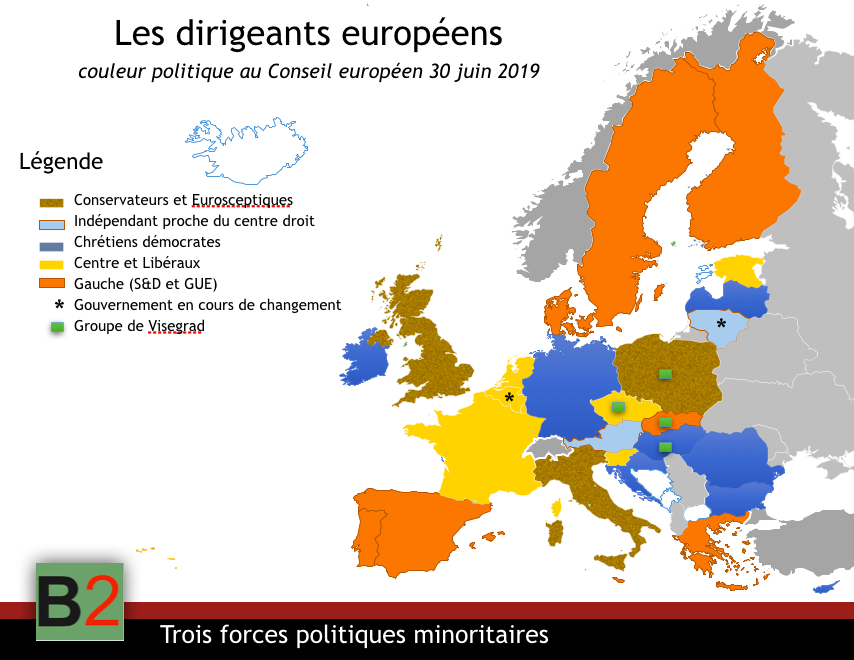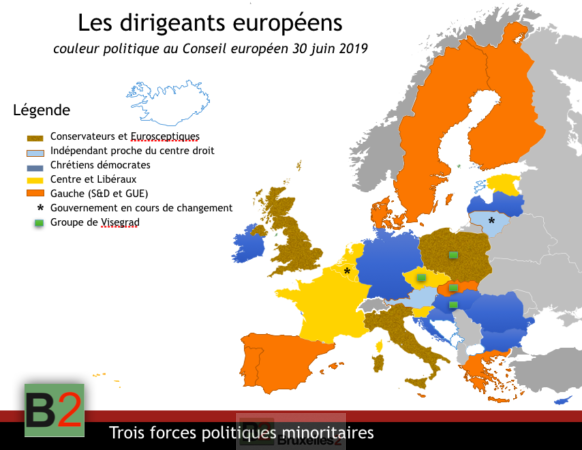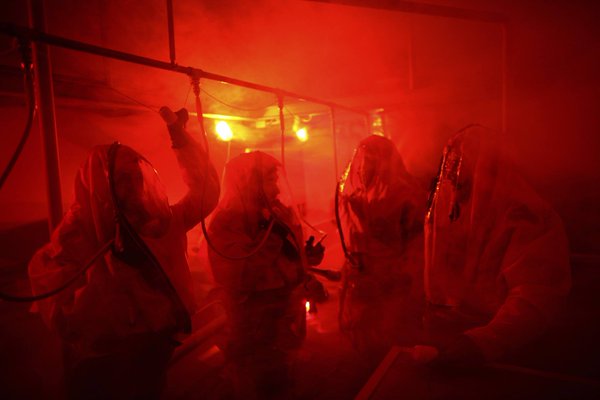A European Council divided into four blocking minorities
(B2) The latest developments within the European Council demonstrate an interesting development. There is no longer a very clear majority. What can explain some current blockages
The last elections in Denmark and Finland saw a victory for the Social Democrats, at the expense of the Liberals, while the Christian Democrats (EPP) of Sebastian Kurz had to cede power in Austria to a technical (independent) government. Latvia took the opposite path, swinging from the center left to the EPP. And this evolution is not about to stop.
In the end, there is no longer a really dominant party, but an almost perfect rebalancing between the three main forces... and therefore in the minority. The European People's Party (EPP) holds nine seats (with the Lithuanian independent D. Grybauskaite), the Social Democrats eight seats, the liberal centrists seven seats, and Austria is represented by a technical (independent) government. None of these parties, even in alliance with another, has a majority. The three groups are doomed to get along, especially as they each have a major leading country (Spain for the Socialists, France for the liberal centre, Germany for the Christian Democrats).
The situation is further complicated by the presence of Eurosceptic conservatives in three countries (and three 'big countries') and the reaffirmed unity of the Visegrad. The four Eastern European countries (Hungary, Poland, Czechia, Slovakia), despite belonging to different political parties, no longer intend to be dictated by a consensus decided by others. Allied with the conservatives, they hold a blocking minority. The Briton Theresa May thus recently affirmed that she did not want to interfere in the choice of the 27, but also that she could not approve a candidate who would not be in the interests of the United Kingdom.
(Nicolas Gros-Verheyde)


